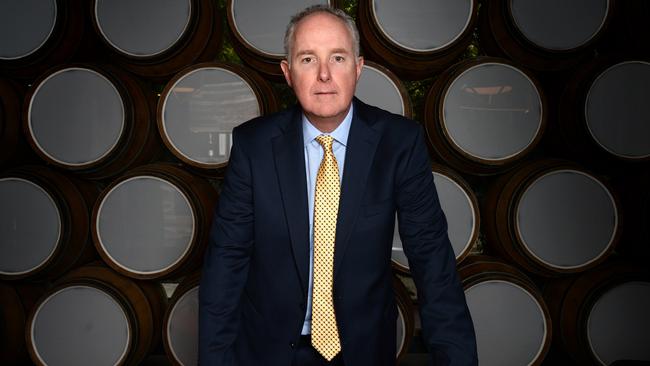
This week Mr Clarke sold recently allotted shares, raising more than $641,000, to help pay his tax bill. In August he sold another parcel of stock to raise more than $3.6 million, which was also disposed of to settle tax obligations.
Clarke last year earned $2.6 million in turn-up-to-work pay, another $2.6 million in short term incentive payments and $588,686 in dividends on the 1.5 million Treasury shares in his name.
Somewhere in between all of that you would think he could work out his tax liabilities without selling shares.
It is simply not a good look for a CEO to be selling shares in the company. The same applies to Hugh Marks at Nine, Brad Banducci at Woolworths and a host of other chiefs who have used the recent trading window to offload shares for tax reasons.
Just how the same person can front shareholder meetings to extol the virtues of the company while at the same time selling hundreds of thousands of dollars worth of shares in the company beggars belief.
The whole idea of executives owning shares is so they can think like shareholders, not traders for personal gain.
On any scorecard it’s hard to question Michael Clarke. In five years Treasury’s stock price has increased by a multiple of five times, return on capital has increased from 6.8 per cent to 14.9 per cent and earnings from $225 million to $662.7 million.
But below it’s been turmoil, which could simply be a function of a cultural change agent, or flashing danger signs.
CFO Matt Young is the fourth chief financial officer in four years at a time when more shareholders are asking whether Treasury’s inventory build up is as positive as Clarke maintains.
The selling point is that TWE is keeping the wine on its books to sell at a higher price rather than letting retailers do the same as the value of the wine appreciates.
Early this year senior executive Robert Foye, who had just moved from Asia to the US, quit Treasury suddenly for “internal breaches.”
At the time it was thought he had had a personality clash with US chief Victoria Snyder, but now she has gone.
So too another former Asia head, two chief marketing officers and a chief operating officer.
Announcing a shake-up on Monday, Treasury said in a statement: “TWE has deliberately carried additional senior managers so that we have the capacity for fixing and strengthening our businesses and functions while delivering significant growth. The way we achieved this was to have a head of function and deputy, and a head of region and a deputy.
It added: “As we’ve come to the end of fixing and strengthening phase, we have only required one head of a function and one head of a region – this has resulted in some senior executives moving on, while some have remained and gone into other roles. The last of these moves was Angus McPherson moving to the Americas to run this business.”
This was all done in the name of simplifying the business.
It’s a funny way of going about running a company, but it’s the rapid-fire changes in CFOs that has most fund managers scratching their heads.
As for Michael Clarke, he is on holiday in France.
As Paul Rayner does his pre-AGM meeting tour of shareholders the question many will want to ask is just whether he has lost control of Michael Clarke, and what this means for the company.





Treasury Wine Estates chair Paul Rayner has a problem with growing questions about his chief executive Michael Clarke who, in terms of financial performance, has not put a foot wrong. But danger signs are everywhere.